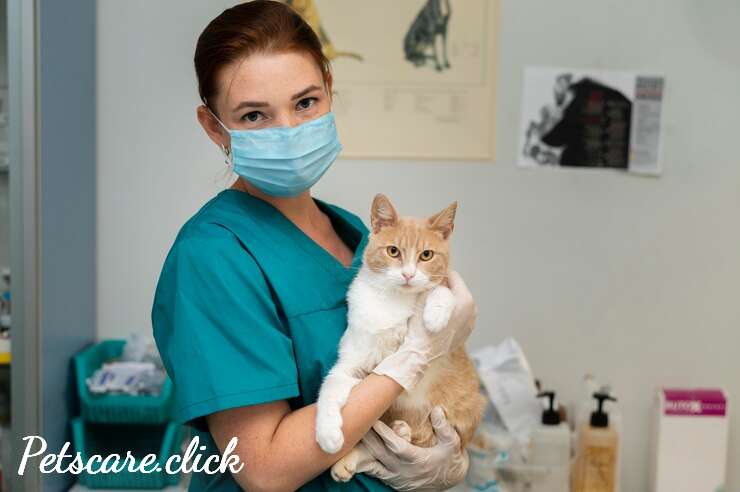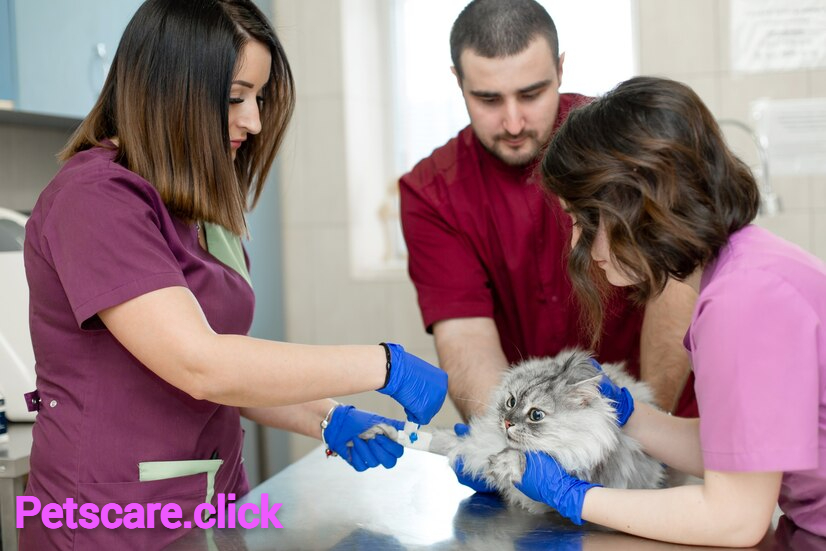When it comes to ensuring the well-being of your pets. Preventive healthcare is just as important as providing them with love and affection. Preventive healthcare for pets not only helps them live longer. Healthier lives but also reduces the likelihood of expensive medical treatments down the road. This guide explores the key aspects of preventive care for pets, including vaccinations, parasite control, regular check-ups, and overall wellness strategies.
Why Preventive Healthcare Matters for Pets
Preventive care is essential because it helps detect health problems early when they are often easier and less expensive to treat. Very much like people, pets can experience the ill effects of different diseases that can stay concealed for extensive stretches. Routine veterinary visits, vaccinations, and screenings can help spot these issues before they become serious or even life-threatening.
In addition to health benefits, preventive healthcare also improves the quality of life for pets by promoting comfort, energy, and vitality. A well-maintained health regimen can prevent painful conditions such as arthritis, dental disease, or obesity, which are common in older pets.
Key Elements of Preventive Healthcare for Pets
1. Vaccinations: The Foundation of Pet Health
Vaccines are crucial for protecting your pet against a variety of serious and contagious diseases. Depending on the type of pet and your location, your veterinarian will recommend a series of core and non-core vaccines.
- Center Immunizations: These are antibodies that each pet ought to get. For canines, center antibodies normally incorporate rabies, sickness, parvovirus, and adenovirus. Felines for the most part require antibodies for rabies, panleukopenia, calicivirus, and rhinotracheitis.
- Non-Core Vaccines: These are based on your pet’s environment and lifestyle. For example, dogs that frequently interact with other dogs in parks or kennels may need the Bordetella vaccine to protect against kennel cough. Cats that go outdoors might require vaccines for feline leukemia or feline immunodeficiency virus.
Benefits of Vaccinations:
- Prevents life-threatening diseases.
- Reduces the spread of contagious illnesses.
- Lowers the overall cost of veterinary care in the long run.
2. Parasite Control: Protecting Your Pet from Fleas, Ticks, and Worms
Parasites like fleas, ticks, and worms are not only a nuisance but can also cause serious health problems for pets. Regular parasite prevention is vital for maintaining a pet’s overall health.
- Fleas and Ticks: Fleas can cause itching, hair loss, and more severe skin infections, while ticks can transmit Lyme disease, Rocky Mountain spotted fever, and other infections.
- Worms: Intestinal worms such as roundworms, tapeworms, and hookworms can lead to digestive issues, malnutrition, and even severe weight loss in pets.
Preventive Measures:
- Use flea and tick preventatives like topical treatments, oral medications, or collars.
- Deworm your pet regularly, especially if they spend time outdoors or interact with other animals.
Your veterinarian can provide the most effective recommendations based on your pet’s age, lifestyle, and health history.
3. Regular Vet Check-Ups: The Importance of Annual Health Screenings

Even if your pet seems healthy, regular veterinary check-ups are crucial for identifying potential health issues early. During an annual visit, the vet will perform a comprehensive health exam, including:
- Physical Exam: Checking vital signs, weight, skin health, and overall body condition.
- Bloodwork and Urine Tests: Identifying any underlying conditions such as kidney disease, diabetes, or infections.
- Dental Health Check: Dental disease is one of the most common health issues in pets. A dental exam will help detect plaque buildup, gingivitis, or other oral issues.
In addition to these assessments, your vet will review your pet’s vaccination history, parasite prevention, and nutritional needs. Regular check-ups also provide a chance to discuss behavioral concerns, training issues, or any other questions you may have about your pet’s health.
4. Dental Care: The Often Overlooked Preventive Step
Dental wellbeing is a basic part of generally speaking prosperity for pets. Poor dental hygiene can lead to painful conditions like gum disease, tooth loss, and even systemic health problems like heart disease or kidney failure. In fact, dental disease is one of the most common conditions affecting pets.
Preventive Dental Care:
- Brushing Teeth: Daily brushing is the most effective way to prevent plaque and tartar buildup. Use pet-specific toothpaste, as human toothpaste can be harmful to pets.
- Dental Chews and Toys: These can help reduce plaque buildup while providing entertainment.
- Professional Cleanings: Regular professional dental cleanings by your vet are necessary for pets with significant plaque or tartar buildup.
5. Healthy Diet and Weight Management: Preventing Obesity and Health Complications
Nutrition plays a pivotal role in maintaining your pet’s health. Obesity is an increasing problem among pets and can lead to several chronic health conditions, including diabetes, arthritis, and heart disease.
Healthy Diet:
- Ensure your pet is fed a balanced, high-quality diet that suits their age, breed, and health needs.
- Measure food portions to avoid overeating, and avoid overfeeding treats.
- Fresh water should always be available to your pet.
Weight Management Tips:
- Regularly monitor your pet’s weight and body condition. A healthy pet should have a waistline when viewed from above, and you should be able to feel their ribs without pressing too hard.
- Incorporate regular exercise into your pet’s routine to maintain a healthy weight.
6. Environmental Enrichment: Mental and Emotional Health
Preventive healthcare isn’t just about physical health—it’s also about your pet’s mental well-being. Providing a stimulating environment is essential to prevent behavioral issues and promote overall happiness.
Enrichment Ideas:
- Provide puzzle toys that challenge your pet’s problem-solving skills.
- Offer interactive play sessions, especially for dogs and cats.
- Set up a quiet, safe space for your pet to retreat to when they need rest.
The Role of Pet Insurance in Preventive Healthcare
Pet insurance is an excellent way to manage the costs of preventive healthcare. While it can’t prevent illness, it can help cover the cost of regular vet visits, vaccinations, and emergency care. Pet insurance plans often offer preventive care add-ons, which may cover wellness exams, vaccinations, and dental cleanings.
By investing in pet insurance, you can ensure that you’re financially prepared to provide your pet with the care they need without worrying about unexpected vet bills.
Pets Insurance
Pet insurance helps cover the cost of veterinary care for your pets, providing financial protection in case of accidents, illnesses, or unexpected medical treatments. Policies typically include coverage for routine check-ups, surgeries, medications, and emergencies, though the specifics vary by plan. Having pet insurance can ease the burden of expensive vet bills, ensuring your pet receives necessary care without the stress of high out-of-pocket costs. It’s a valuable way to safeguard your pet’s health and your finances.
Conclusion
Preventive healthcare for pets is all about being proactive rather than reactive. By focusing on early detection, routine care, and proper management, you can help your pet avoid many common health problems and enjoy a long, happy life. From vaccinations and parasite control to dental care and regular check-ups, each step you take in maintaining your pet’s health will contribute to their overall well-being.
Remember, every pet is unique, so it’s important to work closely with your veterinarian to develop a personalized healthcare plan for your furry friend. By doing so, you ensure that your pet receives the best possible care to lead a healthy and fulfilled life.

